Gardening can be one of those truly enjoyable hobbies that brings you closer to nature and helps you create a peaceful retreat right in your backyard. When you’re starting out with gardening, picking the right tools is as important as choosing your plants. In this article, I’m jumping into Gardening Tools 101: Essential Equipment For Beginners. I’ll share a range of beginner gardening tools and gardening essentials that can make starting a garden fun and manageable.
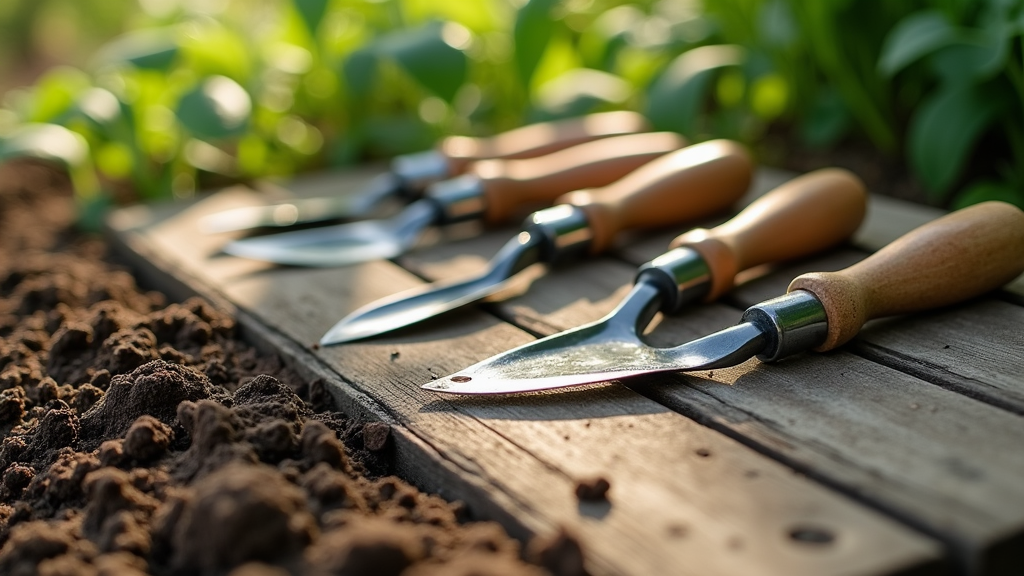
Essential Equipment for Beginner Gardeners
Jumping into gardening means not only planning a layout and selecting plants, but also picking up the right equipment to nurture your garden. A good set of gardening tools doesn’t need to include every gadget available. Instead, focusing on essential gardening equipment ensures you have the right basics as you learn the ropes. Whether you’re planning to cultivate a small herb window box or a large backyard vegetable patch, these essential tools for gardening will be your best companions.
Gardening Tools 101 emphasizes that using basic gardening tools effectively can also help save money in the long run. Investing in high-quality, durable items is a wise decision, even if you only buy a few items at first. Let’s look at the 10 most relevant things you should know to kick off your gardening adventure:
10 Must-Know Tools for Beginner Gardeners
- Gloves: The First Line of Defense Gloves are absolutely essential for protecting your hands from cuts, blisters, thorns, and soil-borne diseases. When shopping for gardening tools, consider gloves made from breathable fabric for light work. For heavier jobs or thorny plants, a leather pair might offer the durability you need.
- Hand Trowel: The Mini Workhorse The hand trowel is a must-have tool used for transplanting seedlings, digging small holes, and removing weeds. It helps you with precision tasks when you need to move plants or work in tight spaces. Beginners should look for models with ergonomically designed handles and stainless steel blades to ensure they stand the test of time.
- Pruning Shears (Secateurs): Clean Cuts Matter When it comes to trimming overgrown branches, deadheading flowers, and light branch pruning, pruning shears are indispensable. There are two types: bypass and anvil. Bypass shears are best for live plants as they provide a clean cut, while anvil types work well for dead wood. Beginners often mix these up, so knowing the difference can really step up your gardening experience.
- Garden Fork: Soil’s Best Friend A garden fork is ideal for loosening, aerating, and turning soil, especially when you’re dealing with clay-heavy ground. It helps prepare your soil for planting, ensuring that water and nutrients move through it efficiently. It’s worth noting that digging forks have wider tines compared to border forks, which are lighter for use in delicate flower beds.
- Spade: The Foundation of Planting For digging larger holes, edging garden beds, or moving soil around, a spade is indispensable. Beginners should look for models featuring a flat-blade design with a D-handle, which offers more control and comfort during use.
- Hoe: Weeding and Soil Prep A hoe is perfect for weeding and breaking up soil crusts that form on your planting area. There are different styles available, including draw hoes that work with a pulling action and stirrup hoes that offer a push-pull method. Knowing which one suits your needs is an easy way to maintain healthy soil for your plants.
- Watering Can or Hose with Adjustable Nozzle: Smart Watering Efficient watering is a big part of gardening. A good watering can or a hose fitted with an adjustable nozzle means you can provide a gentle, consistent stream of water that encourages deep root growth. For beginners, a rose-head watering can is ideal for delicate seedlings, while an adjustable nozzle works well if your garden spans a larger area.
- Rake: Surface Perfection Rakes aren’t just for leaves. They come in various types like leaf rakes for collecting garden debris and garden rakes that help level and prepare your soil after digging or seeding. Selecting the right rake can step up soil structure and create the perfect seedbed for new plants.
- Wheelbarrow or Garden Cart: Mobility is Key Transporting soil, plants, and mulch becomes much easier with a robust wheelbarrow or garden cart. When purchasing this tool, consider the load capacity, the type of tires available (pneumatic tires offer cushioning while solid ones are durable), and overall stability. This tool’s mobility makes it invaluable for all kinds of gardening tasks.
- Garden Knife (e.g., Hori Hori Knife): Versatile Cutting Tool The garden knife, often called a Hori Hori knife, is a versatile tool that can cut through roots, help with digging, transplanting, and even dividing plants. For many beginners, this knife is a hidden gem that often proves more practical and durable than disposable plastic options.
Getting Started with Your Garden
Before spending money on all kinds of fancy gadgets, it’s wise to focus on these basic gardening tools for building a strong foundation. Many beginner gardeners find that once they have their hands on essential equipment for beginners, they start enjoying the hobby even more. Having a clear set of starter tools can also reduce the overwhelming feeling that new gardeners often experience when faced with countless options at the garden center.
It can be tempting to splurge on a fancy pair of tools right away, but you might find that starting with quality basic gardening tools and gradually upgrading is the best way to go. As you learn more about your garden and what type of work it demands, you can always invest in higher-quality or more specialized equipment later on. Consider your current needs and make thoughtful choices that align with how often you plan to garden and what tasks excite you the most.
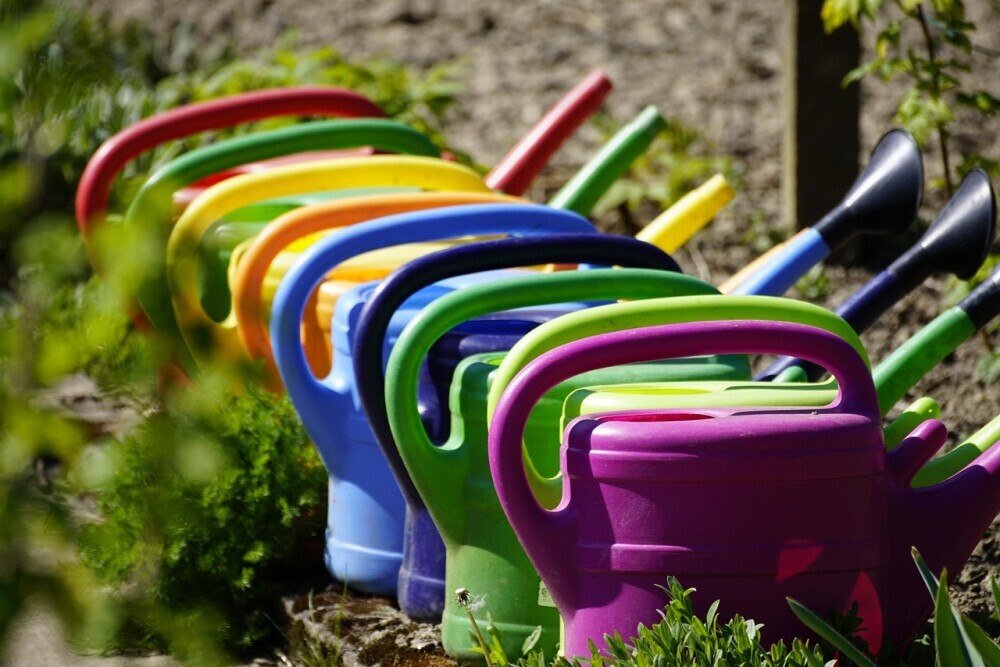
What to Keep in Mind Before Investing in Gardening Tools
When you’re gathering your gardening equipment for beginners, a few considerations can really help steer your decisions. First off, it’s very important to choose quality over quantity. It’s better to have a few reliable tools than a closet full of items that don’t perform well. Quality tools maintain better performance during extended use and help maintain the overall health of your garden.
Here are some points to ponder before filling up your tool basket:
- Maintenance Routine: A regular maintenance routine such as cleaning, sharpening blades, and occasionally oiling metal parts can greatly extend the life of your gardening tools. For instance, a well-maintained pair of pruning shears will always give you cleaner cuts, which helps your plants heal faster.
- Proper Storage: Even the best tools can get damaged if not stored properly. Consider investing in a shed or a dedicated storage area where you can hang your tools, keeping them dry and safe from the elements. This will also help prevent rust and other forms of wear and tear over time.
- Tool Comfort: Because you might spend many hours working in the garden, it’s a good idea to choose tools that feel comfortable in your hand. Ergonomically designed handles reduce strain, minimizing the chance of injuries and fatigue during prolonged gardening sessions.
Advanced Tips and Tricks for Gardeners
While the basics are enough to get you started, once you get more comfortable with gardening, stepping up your game can be both fun and rewarding. Experimenting with advanced techniques might not be something every beginner rushes into, but it can add another layer to your gardening experience.
Plan Your Garden Layout: Having a rough plan for your garden can save you time and effort later. Consider which plants need the most sunlight, the type of soil they require, and how much space is ideal for each. This planning helps avoid overcrowding and ensures that your plants have every chance to flourish.
Master Soil Preparation: Good soil is the foundation of any thriving garden. Learning about soil pH, nutrients, and various types of soil conditioners will empower you to make informed decisions. Over time, you might find that fine-tuning your soil’s composition can lead to healthier plants and a more vibrant garden.
Watering Techniques: While many gardeners rely on a watering can or hose, experimenting with drip irrigation or soaker hoses can be a game-changer, especially if you expand your garden. These methods can make watering more efficient and reduce water loss through evaporation, keeping your plants hydrated without overdoing it.
It can also help to join local gardening groups or online forums. Hearing success and failure stories from other gardeners might give you new ideas about how to overcome challenges, even ones you hadn’t thought of encountering.
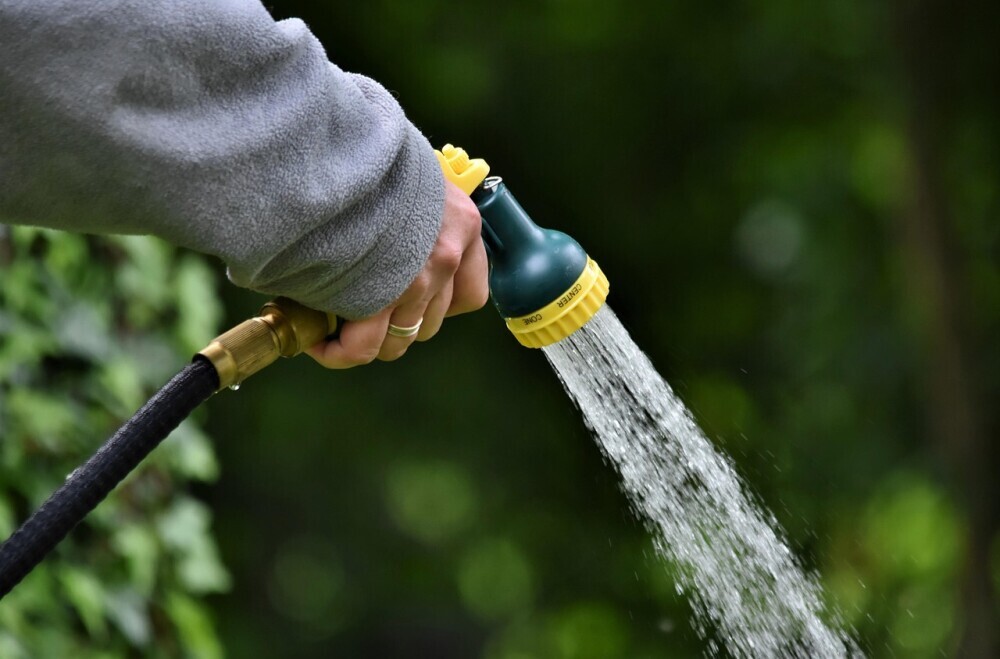
Basic Gardening Tools: Build Your Comfort Zone
When first starting out, it helps to concentrate on a few dependable tools. This way, you can learn the methods and techniques with less distraction from the complex equipment that sometimes promises more than it delivers. For beginners, this means focusing on the tools mentioned in our top 10. These items form the core set of tools for beginner gardeners and are often a stepping stone to more elaborate gardening projects.
Imagine, for example, the satisfaction you’ll get from wisely using a simple spade to prepare your garden bed, or the ease of moving compost and mulch with a wheelbarrow. Over time, as you develop your gardening chops, you can gradually expand your collection, but these basics will always remain valuable.
Frequently Asked Questions
Many new gardeners have questions about starting out, and I’ve compiled some of the common ones below to help clear things up.
Question: What Gardening Tools should I prioritize when I’m just starting out?
Answer: Focusing on essential gardening equipment like gloves, a hand trowel, pruning shears, and a good spade is a safe starting point. These are the garden tools you’ll use most frequently and offer a solid foundation for your gardening projects.
Question: Do I really need to invest in expensive tools?
Answer: Not necessarily. It’s better to buy quality tools but only as many as you need. Over time, as you learn more and your needs grow, you might choose to upgrade some items. Quality over quantity tends to work best in gardening.
Question: How do I keep my tools in good condition?
Answer: Regular maintenance is key. Clean your tools after each use, sharpen blades when needed, and store them in a dry, safe place. This simple routine can help prevent rust and extend the lifespan of your equipment.
Question: What if I only have a limited budget for gardening?
Answer: Start small with only the basics. Many beginner gardening tools are affordable if you shop wisely, and you can always add more as your garden grows and your skills improve.
Question: Should I buy tools with ergonomic handles?
Answer: Yes, especially if you plan to garden for long hours. Ergonomically designed handles reduce fatigue and lower the chance of injuries. It makes your experience much more enjoyable as you spend more time outdoors.
Growing Your Garden, One Tool at a Time
Just like nurturing any living thing, growing a garden takes time, patience, and care. As you familiarize yourself with your beginner gardening tools and learn to use each piece effectively, you might find that the work becomes almost therapeutic. There’s something incredibly satisfying about watching a seed grow into a flourishing plant, and the right tools definitely make that process smoother.
Gardening equipment for beginners isn’t limited to just the physical items you use. It also includes the knowledge you gather along the way—knowing when to water, how to prune, and how to plan for seasonal changes. As you acquire gardening wisdom, you’ll start to notice that the act of gardening can boost your mood, help reduce stress, and even inspire you to try new creative ideas in your garden design.
If you ever feel a bit overwhelmed, remember that every gardener started somewhere. The simple act of spending a couple of hours outside, getting your hands dirty with some basic gardening tools, is a step in the right direction. Gardening is both a science and an art, with plenty of room for personal touches and unexpected discoveries.
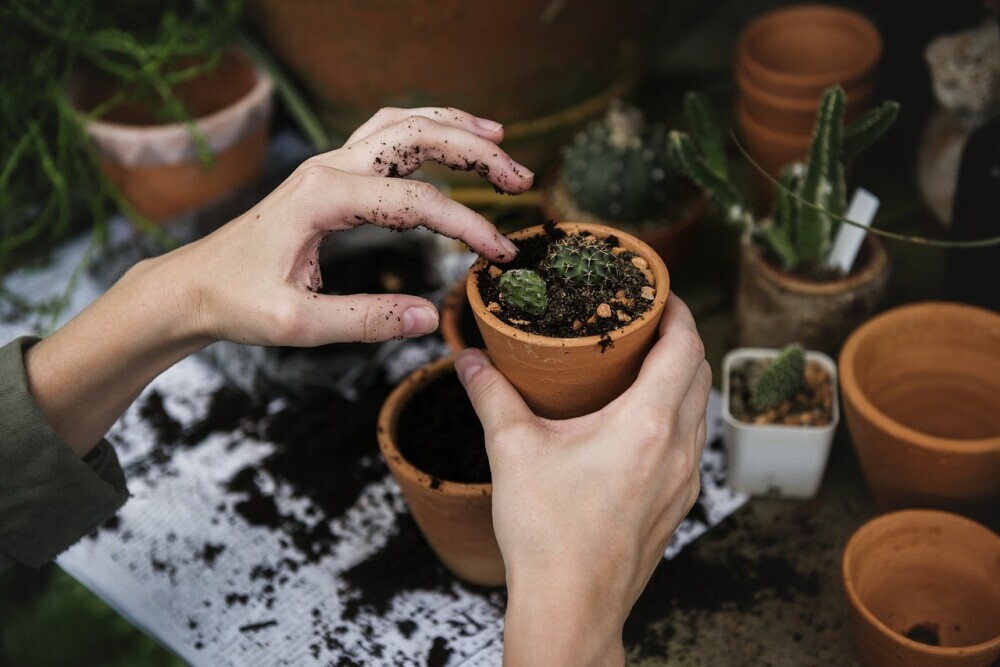
Refining Your Gardening Skills
After you’ve set up your garden with essential tools like a spade and hand trowel, you might begin to explore some advanced gardening practices. Experiment with techniques such as crop rotation to improve soil health or companion planting to boost growth. Perhaps try out some organic fertilizing methods and see how your garden responds. Over time, you’ll find that as your skills improve, your garden will begin to thrive in ways that truly reflect your dedication and care.
Don’t rush to adopt every new tool or trend that comes along. With a solid foundation using basic gardening tools, you have plenty of opportunities to improve on what you already have. Slowly upgrading and supplementing your toolbox is a rewarding ride as you transition from beginner gardening to becoming more confident and creative in your plant care routine.
Expanding Your Gardening Horizons
As you continue to grow your garden, it’s important to keep exploring new methods and techniques that can help you build on your successes. You might start experimenting with seasonal planting strategies, intercropping different species, and even integrating modern irrigation systems to optimize water usage. These techniques not only add variety but also allow you to learn more about the environmental factors that influence plant growth. Taking the time to research and test these methods can truly add a boost to your gardening skills.
In addition, consider dedicating some time each season to rethinking and reorganizing your garden layout. Revisiting the placement of plants, checking soil condition, and planning for seasonal bloom times can provide new insights. This reflective practice often leads to small adjustments that make a significant difference in overall garden health and productivity. Sharing these insights with fellow gardeners or even keeping a garden journal can enrich your overall experience and help you continue to nurture your green space effectively.
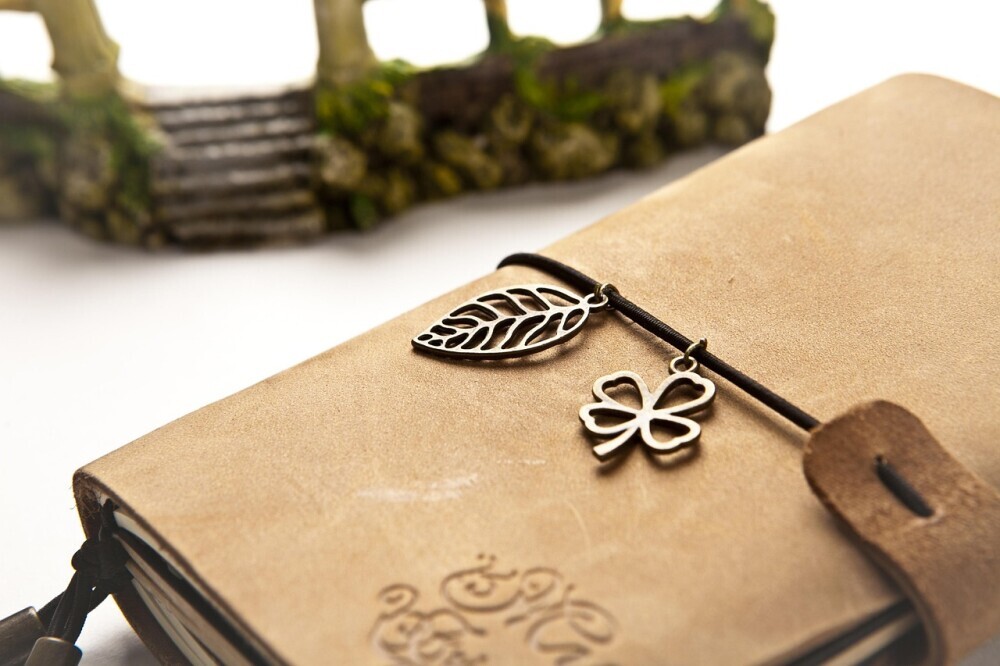
Wrapping up
The journey of starting a garden is filled with learning curves and small victories. Gardening Tools 101: Essential Equipment For Beginners offers an all-in-one view of the tools and techniques that make tending to your garden easier and more enjoyable. From protecting your hands with reliable gloves to using a versatile garden knife for a range of tasks, every tool has its special role in nurturing your plants.
Embrace your new hobby, and remember that the real reward of gardening comes from watching your plants grow and knowing you played a part in their success. Begin with a solid collection of essential gardening equipment, maintain it well, and soon your garden will become a source of comfort, beauty, and health. Enjoy the process, be patient, and most importantly, have fun as you stumble upon what it means to truly nurture nature.
So, if you’re ready to jump into the world of gardens, gather your tools and get started. Every small step, every planted seed, and every well-pruned branch adds up to a green space that reflects care, creativity, and hard work. Happy gardening!
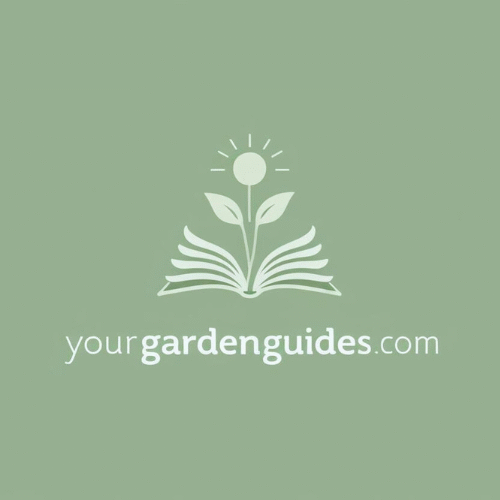

Starting out with the right gardening tools can really set the foundation for a successful gardening journey. The idea that quality matters more than quantity is spot on, especially for beginners. It’s easy to get overwhelmed by all the options, but focusing on a few essential tools like a sturdy spade, rake, and pruners can make a world of difference in efficiency and comfort. I also appreciate the emphasis on ergonomics. Gardening can be tough on the body, so tools that reduce strain can help avoid injury and make the experience much more enjoyable.
Thank you so much for your thoughtful comment! Starting with the right tools really does lay the groundwork for a positive and productive gardening experience. It’s easy to get caught up in all the gadgets and accessories available, but focusing on a few high-quality essentials like a dependable spade, a good rake, and sharp pruners can truly transform both your efficiency and enjoyment in the garden.
I’m glad you mentioned ergonomics. Taking care of our bodies while we work outdoors, it is just as important as caring for the plants themselves. Investing in well-designed tools that minimize strain not only helps prevent injuries but also allows us to garden comfortably for years to come. It’s wonderful to hear that this resonated with you, do keep up the great work, and happy gardening!
Your Garden Guides
Having the right gardening tools from the start really makes a huge difference, especially for beginners who might otherwise get frustrated. I love how this guide focuses on essential equipment instead of overwhelming people with too many options. One thing I’ve always been curious about is whether it’s better to invest in a full tool set at once or build a collection gradually as specific needs arise. For someone just getting into gardening, would you recommend starting with just a few basics, or is it more cost-effective in the long run to purchase a complete starter kit?
Hi Slavia,
I Absolutely agree…, starting with the right tools can make gardening feel less like a chore and more like the joy it’s meant to be!
When it comes to building your gardening toolkit, I usually recommend starting with just a few high-quality basics. Essentials like a hand trowel, pruners, a sturdy pair of gloves, and a watering can or hose will cover most beginner tasks. This approach helps you get a feel for what you actually enjoy and what types of gardening you’re most drawn to—whether that’s container gardening, raised beds, or even vertical setups.
Buying a full tool set all at once might seem cost-effective, but it often includes tools you may never use. Gradually adding to your collection as your skills and garden grow ensures you’re investing in items you truly need, and you can prioritize durability and comfort over quantity.
That said, if you find a well-reviewed starter kit with all the basics you’ll definitely use, it can be a convenient way to hit the ground running—just be mindful of quality. Tools that break or cause hand fatigue end up costing more in the long run!
Hmm, maybe I could do a topic on that….
yourgardenguides
I really enjoyed reading this guide. It made gardening feel so much more approachable, even for someone like me who’s just starting out! I love how you focused on building a solid foundation with quality tools instead of getting overwhelmed with fancy gadgets. It’s clear that a little planning goes a long way. Out of curiosity, which tool would you personally never garden without?
Thank you so much for your kind words!
I’m really glad to hear that the guide helped gardening feel more approachable—that’s exactly what I hope for when writing. It’s so easy to get caught up in all the bells and whistles, but as you noticed, having a solid foundation and the right mindset makes all the difference.
As for the one tool I’d never garden without—hands down, it’s again my trusty hori hori knife. It’s a bit of a multitasker: I use it for digging, weeding, transplanting, even measuring planting depth thanks to the markings on the blade. It’s rugged, compact, and incredibly useful across just about every task in the garden. That said, the best tool is always the one that fits your style and needs, so don’t be afraid to experiment a little as you find what works best for you!
Happy gardening, and feel free to reach out anytime with questions or updates.
I love hearing how things are growing!
yourgardenguides
I really loved how you demystified gardening gear by honing in on just ten must-have tools—quality over quantity is such smart advice for beginners. The spotlight on gloves as your first defense and the Hori Hori knife as a versatile secret weapon really resonated with me. Your tips on maintenance and storage feel like little lifelines for anyone who wants their tools to last. In my opinion, this step-by-step approach makes starting a garden feel totally doable. Quick question: if you had to pick just one tool to gift a new gardener on a tight budget, which would you choose?
Hey Kavitha,
Thank you so much for your kind words. It means a lot that the practical approach and focus on long-term care made gardening feel more approachable.
As for your great question: if I had to choose just one tool to gift a new gardener on a budget, I’d go with the Hori Hori knife. It’s affordable, incredibly versatile, and truly a real multitasker, perfect for digging, weeding, planting, dividing, even measuring soil depth. It can easily replace several single-purpose tools, which makes it a smart investment when starting out.
Pair it with a good habit of cleaning and drying after use, and it’ll serve a beginner well for years. Let me know if you’d like a few budget-friendly recommendations!